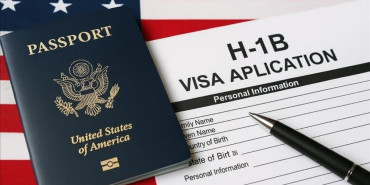Nationwide ICE Arrests During Immigration Hearings Labelled 'Unlawful' in Federal Case

A coalition of legal advocacy organisations has launched a federal class-action lawsuit against the US Department of Homeland Security (DHS) and the Department of Justice (DOJ), alleging a systematic strategy to circumvent due process through the arrest of non-citizens at immigration court hearings.
Led by Chicago’s National Immigrant Justice Centre, the lawsuit accuses the government agencies of orchestrating a procedural shift that undermines judicial independence and intensifies expedited deportation measures. The core of the legal challenge revolves around claims that DHS agents, allegedly acting in concert with revised DOJ directives, have begun detaining individuals attending their scheduled immigration court proceedings. Attendance at these hearings is often a prerequisite for pursuing legal residency or asylum.
The lawsuit claims that some individuals were taken into custody immediately after their cases were dismissed by judges, following new guidance that prioritised swift rulings with fewer procedural safeguards. Keren Zwick, litigation director at the National Immigrant Justice Centre, describes the policy as "unprecedented", arguing that it enables enforcement agencies to divert migrants into faster, less protective removal processes. According to Zwick, the policy targets individuals within the courtrooms, placing them into removal proceedings where they have fewer rights.
The legal action arises from the circulation of internal communications within the Executive Office for Immigration Review (EOIR), which oversees the immigration court system. An email circulated among Assistant Chief Immigration Judges in late May instructed the streamlining of case dismissals. The email came shortly after a White House mandate calling for 3,000 immigration arrests per day. The EOIR guidance instructed judges to forego the standard 10-day response period typically granted to trial attorneys and defendants, in favour of immediate adjudication.
Former Chicago immigration court chief Judge Jennifer Peyton confirmed receiving such directives, describing a sharp departure from established practices. Peyton said that judges were instructed to adjudicate motions immediately, forgoing the 10-day response period. She added that Immigration and Customs Enforcement (ICE) agents began operating within courtrooms, escorting individuals away in handcuffs as their cases were summarily dismissed.
This swift alteration in courtroom procedures has caused concern amongst legal professionals and immigration advocates, who cite a decline in judicial independence and due process rights. Kristi Nelson, a former Chicago judge who resigned before the guidance was enacted, also raised alarm at the centralised directives. Nelson questioned the propriety of directing a judge on how to rule, stressing the importance of independence.
Critics maintain that the policy represents a broader federal attempt to reshape immigration enforcement through aggressive, high-volume tactics. The expedited removal procedure, which allows for deportation in as little as 72 hours, has long been a point of contention. While the DHS defends the practice, citing efficiency and safety, advocacy groups contend that it strips individuals of a fair opportunity to present their case and undermines the integrity of the legal system.
In response to the lawsuit, DHS Assistant Secretary Tricia McLaughlin issued a statement defending arrests made in courthouses, describing them as logical and resource-efficient. McLaughlin said that arresting criminal illegal aliens in courthouses conserves law enforcement resources. She asserted that court settings are secure environments, where individuals are already screened for weapons upon entry.
The legal challenge argues that the arrests frequently target individuals without criminal records who are actively participating in the legal process to regularise their immigration status. The complaint states that individuals have been abruptly taken from their families for appearing in immigration court, violating standards for adjudicating asylum and residency applications.
The American Immigration Lawyers Association (AILA) has also weighed in, advising members that the new EOIR directive conflicts with federal regulations and existing immigration policy. An advisory issued by AILA described the guidance as clandestine and warned that its implementation could erode public trust in the immigration court system.














Add new comment